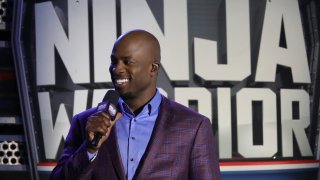
In celebration of Black History Month, CNBC Invest in You is featuring weekly stories from CNBC contributors and members of the Financial Wellness Council, including the lessons they've learned growing up, their advice to Black youth, their inspirations and how they are working to close the racial wealth gap.
More needs to be done to help Black Americans achieve financial success, from increased financial literacy resources to realizing the unique power the next generation of Black Americans holds.
The pandemic has widened the gap between Black-owned businesses and their white counterparts. Black-owned businesses declined by 41% between February and April 2020, compared with a 17% decline among White-owned businesses. Recent research shows that Black Americans' knowledge of saving and investing significantly lags behind whites.
Here's advice from CNBC contributors and members of the CNBC Financial Wellness Council, including their recommendations to those in power and the Black youth of America.
Feeling out of the loop? We'll catch you up on the Chicago news you need to know. Sign up for the weekly Chicago Catch-Up newsletter here.
Brandon Copeland, NFL player
For New England Patriots linebacker Brandon Copeland, financial literacy won't come to those who idle and wait. Instead, it is something people need to seek out.
Money Report
"My advice to the next generation of Black Americans is to not wait for this information, but be proactive in seeking it out."
Copeland, who graduated from and now teaches at the University of Pennsylvania, has been a longtime advocate for increased financial literacy. His online course, Life101.io, helps students navigate the complex money decisions they will encounter throughout life.
"Take ownership of your financial education so that you can change not only your life but your family's life for the better," he recently told CNBC.
James McDonald, Hercules Investments
Everyone learns differently, and for some, reading real-life success stories is key to financial success.
For James McDonald, a CNBC contributor, and founder and CEO of Hercules Investments, it was stories about financiers that encouraged him to pursue a career in finance.
"For me, reading about finance, reading about stories of financiers made a huge difference in empowering me to have the courage to pursue my own financial career," he tells CNBC.
He also stressed the importance of financial literacy. "Get literate, understand finance, saving, investing and planning, and you will help close the racial wealth gap starting with yourself."
Kourtney Gibson, Loop Capital Markets
If the next generation wants to succeed they need to turn to their superpower, according to Kourtney Gibson, president and partner at Loop Capital Markets.
"One piece of advice that I would give to the next generation of young Black people in this country is to be unapologetically Black. It is your superpower, it can be your superpower. It's up to you to use it," she says.
Gibson currently is a board member for Canada-based athletic apparel brand Lululemon. Lululemon is among the founding sponsors of the Canadian Journalism Foundation's Black Journalism Fellowship.
Akbar Gbajabiamila, 'American Ninja Warrior'
The co-host of "American Ninja Warrior" wishes he could be a superhero sometimes.
"I wish I could just be the Black Financial Superman and just go to everyone's house and say, 'Hey, here are the resources,'" he recently told CNBC.
Gbajabiamila, who played professional football for the Oakland Raiders, San Diego Chargers and Miami Dolphins, added that there is a lack of trust in Black communities.
"There are too many people in my community that the highest level of investment that they know of are CDs [certificates of deposit]," he says. "We've got to tear down that wall. I want everybody to get in. I want everybody to win."
More from Invest in You:
The smallest businesses are getting extra PPP help. What to know before applying
Black small-business owners are being left behind in the pandemic, survey finds
Black leaders offer several key steps to help close the racial wealth gap
Dewardic McNeal, managing director & senior policy analyst, Longview Global
Financial literacy alone will not be enough to close the racial wealth gap, or as Dewardic McNeal points out, the racial wealth gulf.
"$17,150, the median net worth for Black households; $171,000, that's the median net worth for white households. This is not a wealth gap. This is a wealth gulf," McNeal said, referencing data from a 2016 Fed survey—more recent data shows the median wealth of Black households at $24,100 in 2019, but the gap as wide as ever, with White households having median wealth of $188,200.
In order to close this gulf a number of steps must be taken including greater access to capital for Black-owned businesses, greater opportunities for employment and participation in the equity economy.
As of January, the unemployment rate for Black Americans was at 9.2% compared to 5.7% for white Americans, according to data from the Federal Reserve Bank of St. Louis.
Degas Wright, Decatur Capital Management
Degas Wright, a former Captain in the United States Army, says outside of his family the biggest influence in his life was his time at the United States Military Academy at West Point.
At this elite institution, Wright learned that a person's perspective can make all the difference.
"I remember summer of my freshman year walking around with my roommate and he saw the buildings being gray, but I saw silver because I really wanted to be there. He dropped out after freshman year," Wright recently told CNBC. "I was able to graduate. And I learned from that experience it's all about your perspective that makes the difference."
Only about 12% of nearly 12,000 applicants are accepted to West Point each year.
Wright is the founder and CEO of Decatur Capital Management
SIGN UP: Money 101 is an 8-week learning course to financial freedom, delivered weekly to your inbox.
CHECK OUT: Here's the credit score you need to buy a home via Grow with Acorns+CNBC.
Disclosure: NBCUniversal and Comcast Ventures are investors in Acorns.






